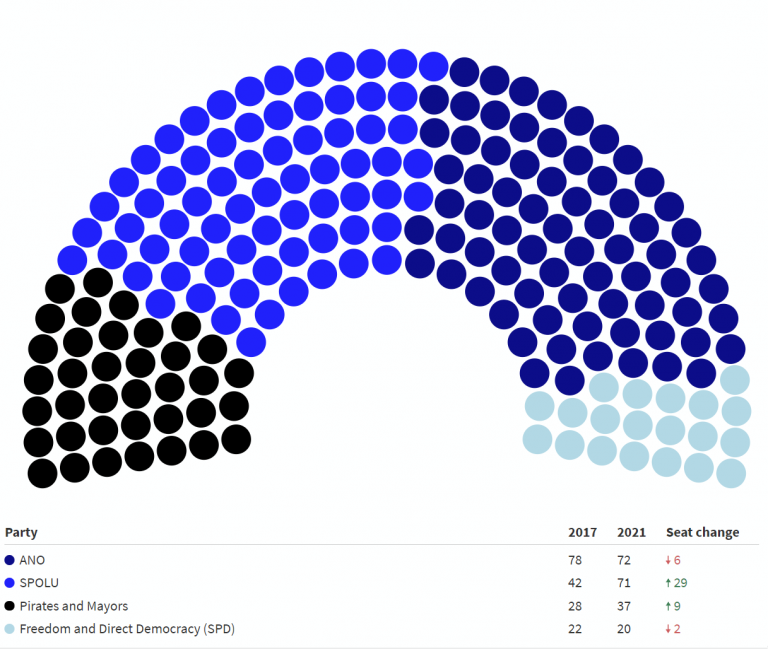
Credit: EUROPPBLOG
The results of the Czech election suggest that the populist wave in Eastern and Central Europe is receding, stalled by the growing unity of its opponents and a crisis of confidence, the Times reports:
The results, which showed a nationalist party led by a Czech-Japanese firebrand getting around 9.6 percent of the vote, were far from an unequivocal rejection of far-right populism. But the strong showing by the mainstream coalition and a socially liberal opposition group, the Pirates, allied with another party dominated by local mayors, suggested that a populist wave in Eastern and Central Europe is perhaps receding.
The election provided three important lessons on the effects of populism, Jan Rovny, an Associate Professor at Sciences Po in Paris, writes for Europpblog:
- The first is the poisonous power of populism. By becoming the dominant figure of Czech politics, increasingly adapting the rhetoric and strategy of illiberalism, Andrej Babiš weakened his allies, and strengthened his opponents. While the outcome endows Babiš and ANO with the largest number of parliamentary seats, it leaves him in an impossible position to negotiate the next governing coalition, almost certainly paving the way for government turnover.
- Second, the left has been left out, as historical left-wing parties recorded their worst electoral result and find themselves stripped of parliamentary representation.
- Finally, the election demonstrated that when democratic opponents of illiberalism put aside their differences and coordinate, they can defeat populism. RTWT







